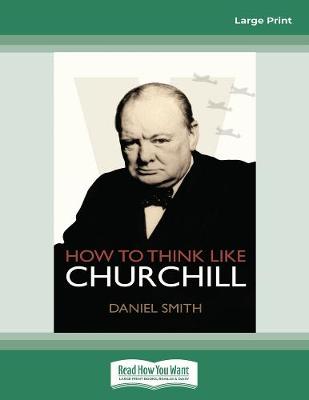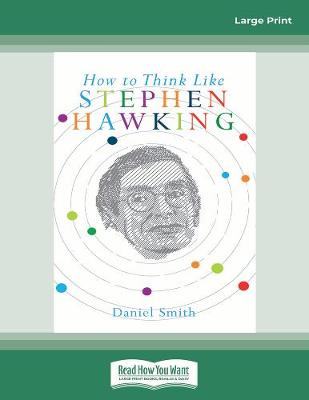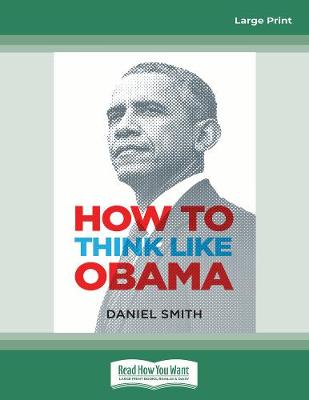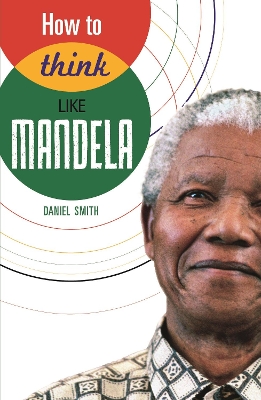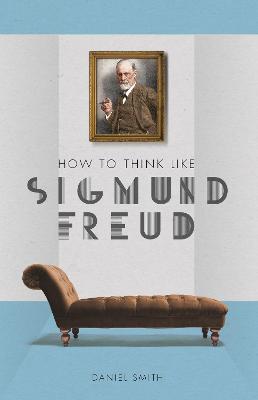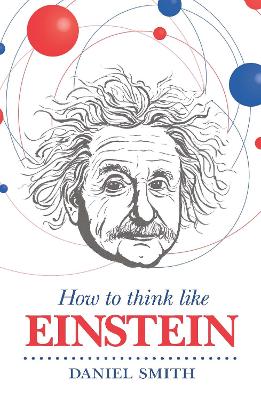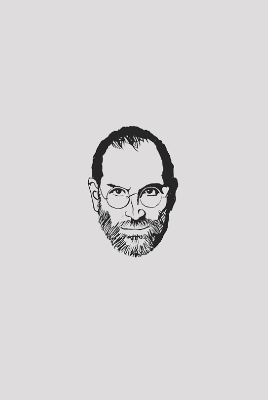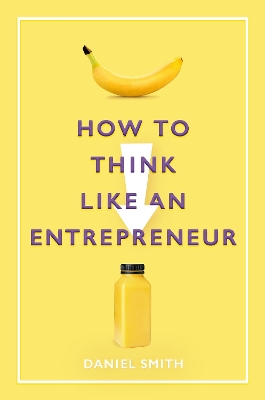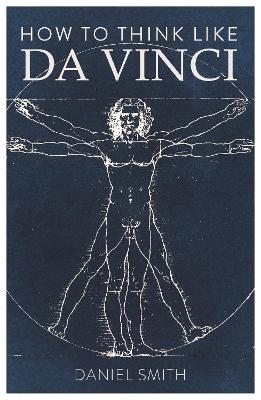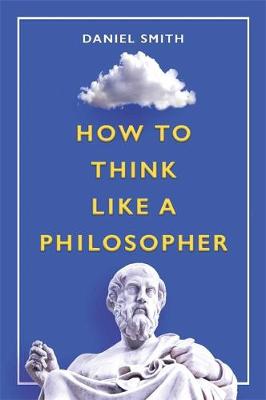How to Think Like ...
11 total works
Nelson Mandela was one of the few men in recent history who genuinely changed the world - how we think about our place in society among other ethnic, political and religious groups and how perseverance, moral conscience and honest dialogue can help us achieve anything. Throughout his long life,...
Read moreNelson Mandela was one of the few men in recent history who genuinely changed the world - how we think about our place in society among other ethnic, political and religious groups and how perseverance, moral conscience and honest dialogue can help us achieve anything. Throughout his long life, he faced struggles against odds and opposition many of us can only begin to understand, was imprisoned for decades for his beliefs, yet ultimately stood by them and saw them vindicated by a nation.
How to Think Like Mandela teaches us how he accomplished his achievements, his methods, his speeches, the many forms of opposition, both peaceful and non-peaceful, that he employed to reach his ends and why he fought in the way he did. Comprehensive and informative, this is the ideal book for admirers of this great man.
The work of Sigmund Freud, one of the most important thinkers of the past two hundred years, redefined the fields of neurology and psychotherapy and the way we view the human mind. Most strands of the psychoanalytic discipline can even today be traced back to the leaps in understanding...
Read moreThe work of Sigmund Freud, one of the most important thinkers of the past two hundred years, redefined the fields of neurology and psychotherapy and the way we view the human mind. Most strands of the psychoanalytic discipline can even today be traced back to the leaps in understanding he made all those years ago.
But his greatest success was to make the esoteric mainstream. The Oedipus complex, transference, the unconscious, repression, free association, the libido: these are all ideas and techniques from the Freud school of thought that have permeated the public consciousness. How to Think Like Sigmund Freud examines these and more in a quest to know one mind above all: that of a person who struggled with his own neuroses while attempting to understand those of others.
Discover how the motivations and philosophies of a man who dared to tackle issues others feared to transformed what was a murky study into a real science. With this book you too can think like the man who came to comprehend the human condition better than any other.
Best known as the creator of the world's most famous equation, E=mc2, Albert Einstein's theories of relativity challenged centuries of received wisdom dating back to Newton. Without his groundbreaking work in relativity and quantum physics, our knowledge of the cosmos might lag decades behind where it is today.
But...
Best known as the creator of the world's most famous equation, E=mc2, Albert Einstein's theories of relativity challenged centuries of received wisdom dating back to Newton. Without his groundbreaking work in relativity and quantum physics, our knowledge of the cosmos might lag decades behind where it is today.
But Einstein was not only an extraordinary scientific thinker. He was a humanitarian who detested war and tried to stem the proliferation of hitherto unimaginably destructive weapons that his work had in part made possible. He spent a lifetime fighting authoritarianism and promoting personal freedom, selflessly standing up to those who posed a threat to those ideals.
He was also a bona fide superstar and was instantly recognizable to millions who had not the least understanding of the intricacies of his scientific theories. Even now, the image of the tussled-hair 'mad professor' poking his tongue out at the camera is familiar across the globe.
In How to Think Like Einstein, you can explore his unique approach to solving the great scientific mysteries of his age and trace the disparate ideas and influences that helped shape his personality and outlook - for better and worse.
A titan of technological innovation, Steve Jobs thought differently to everyone else.
He had the mercurial ability to know what people wanted before they knew it themselves, and what's more, he knew how to sell that idea.
An advocator of good design in both function as well as...
A titan of technological innovation, Steve Jobs thought differently to everyone else.
He had the mercurial ability to know what people wanted before they knew it themselves, and what's more, he knew how to sell that idea.
An advocator of good design in both function as well as appearance, his influence in Silicone Valley changed the way the world thinks about technology.
But how did he achieve such success? What were his methods?
How to Think Like Steve Jobs reveals the philosophies and carefully honed skills Jobs used in his journey to the top and in the consolidation of Apple's unique place in the public consciousness. With his thoughts on innovation, how to find inspiration, presenting an idea, advertising and much more, you can learn how to view the world through the eyes of a genius.
The insights this book provides into the mind of the master will have you thinking like Steve Jobs in no time at all.
Other books in the series include: How to Think Like Stephen Hawking, How to Think Like Sherlock and How to Think Like Churchill.
From Andrew Carnegie and Oprah Winfrey to Steve Jobs and Sunil Mittal, this book will teach you how to think like the best minds in the business.
Drawing on the stories, experiences and words of iconic business figures from around the globe and across the years, each chapter deals...
From Andrew Carnegie and Oprah Winfrey to Steve Jobs and Sunil Mittal, this book will teach you how to think like the best minds in the business.
Drawing on the stories, experiences and words of iconic business figures from around the globe and across the years, each chapter deals with a specific aspect of entrepreneurship and the lessons they can teach us, such as:
– If you want to become big, you need to think big
– Don't forget what makes your business scalable in the first place
– Prepare your company for growing pains
– Try to predict what lies ahead, but remember Warren Buffet's wise words: 'Forecasts usually tell us more of the forecaster than of the future'
Informative, educational, thought-provoking and packed full of words of wisdom from and about the world's best entrepreneurs, How to Think Like an Entrepreneur presents the ideas and methods of the business greats, allowing the reader to expand their understanding of what drives and informs successful entrepreneurship.
'You see, but you do not observe. The distinction is clear.'
Such were the words of the master detective Sherlock Holmes to Dr Watson, as he noted how his friend failed to implement Holmes's techniques.
In How to think like Sherlock you will learn how to increase your powers...
Read more'You see, but you do not observe. The distinction is clear.'
Such were the words of the master detective Sherlock Holmes to Dr Watson, as he noted how his friend failed to implement Holmes's techniques.
In How to think like Sherlock you will learn how to increase your powers of observation, memory, deduction and reasoning using the tricks and techniques of the world's most famous detective, Sherlock Holmes. The book incorporates the latest techniques and theories across a range of topics: NLP, memory mapping, body language, information shifting and speed reading - this is a supremely practical book that will make you look at the world in a new light, and more importantly, impress those around you.
Packed full of case studies, quotes and trivia from Arthur Conan Doyle's original novels and short stories, How to think like Sherlock also includes a series of fun tasks and games for you to complete that will ensure that when you reach the end of the book you will be thinking like Sherlock Holmes, the master of the science of deduction.
You will never look at a shirt cuff, trouser hem or scuff of dirt on a shoe in the same way again!
Other books in the series include: How to Think Like Stephen Hawking, How to Think Like Churchill and How to Think Like Steve Jobs
500 years after Leonardo da Vinci's death, learn about this great visionary's life and achievements and develop your understanding of one of the world’s most eclectic and extraordinary minds.
Famed for creating some of the most iconic images in European art – including Mona Lisa and The Last Supper –...
500 years after Leonardo da Vinci's death, learn about this great visionary's life and achievements and develop your understanding of one of the world’s most eclectic and extraordinary minds.
Famed for creating some of the most iconic images in European art – including Mona Lisa and The Last Supper – Leonardo da Vinci has influenced generations of artists and thinkers, and continues to do so after more than 500 years. While we cannot hope to emulate his achievements, da Vinci showed an attitude towards life from which we can all learn.
A true polymath, he was also a sculptor, architect, musician, mathematician, engineer and an anatomist and, with an unquenchable thirst for knowledge, da Vinci was never satisfied with what he had learned, frequently turning his mind to new, unexplored subjects. He saw links between art and science, and constantly pursued perfection and accuracy in his work, so that he developed many techniques we continue to use to this day. Combining these strengths with a unique imagination, da Vinci came up with designs for inventions centuries ahead of their time.
In How to Think Like da Vinci, you too can learn to think like the Renaissance man, seize your opportunities, harness your talents, innovate and experiment and imagine the impossible. Read about this great man’s life and achievements and develop your understanding of one of the world’s most eclectic and extraordinary minds.
From Socrates to Sartre, Avicenna to Angela Davis, this accessible guide will get you up to speed on the world's greatest minds and help you to think like them.
You've heard of Plato, but do you understand his Theory of Forms? What does Rene Descartes' maxim 'I think, therefore I...
From Socrates to Sartre, Avicenna to Angela Davis, this accessible guide will get you up to speed on the world's greatest minds and help you to think like them.
You've heard of Plato, but do you understand his Theory of Forms? What does Rene Descartes' maxim 'I think, therefore I am' actually mean? And how is philosophy relevant to modern life?
Drawing on the thoughts and words of iconic philosophers from the ancient world right through to the present day, each chapter deals with a specific philosophical theory. Explore the conflict between free will and determinism, the political concept of Machiavellianism, the difference between metaphysics and epistemology, and what dialectics actually is in this accessibly-written guide to the smartest minds in history.
